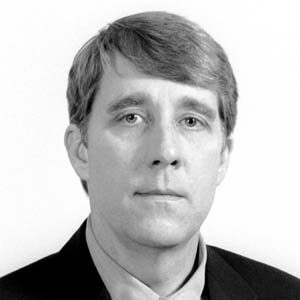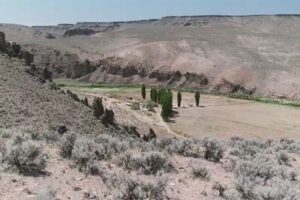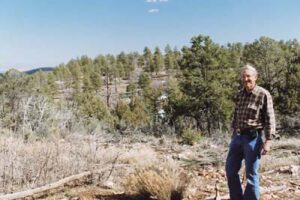Ken Olsen
- 2003

Fellowship Title:
- Land Swaps and Land Scams
Fellowship Year:
- 2003

Secret Land Swaps That Taxpayers Help Finance II
Across the West, a handful of environmental groups are persuading Congress to bestow wilderness protection on their favorite stretch of country by trading away public land. Such deals are the only way to protect the last unspoiled territory from development in the face of increasing political hostility, they say. But controversial land swaps are causing a growing rift between environmentalists who are willing to deal and those who believe the price is too high. Not only are some groups trading away public land, they are relinquishing public water rights, inviting speculation in environmentally valuable acreage, fueling runaway growth in some of the most congested – and water-short – regions of the West and setting a precedent for future land giveaways, critics charge. Objectionable or not, this deal making is likely to persist. Two of the most significant examples are unfolding in Idaho. The Nature Conservancy is helping negotiate the proposed transfer of thousands of acres of U.S. Forest Service and Bureau of Land Management land – including a slice of the Sawtooth National Recreation Area

Secret Land Swaps Taxpayers Help Finance I
Fred Ruskin wants thousand of acres of national forest land in Northern Arizona to build a shopping center, subdivisions and other developments that assure his family’s financial fortunes. Most of it is desert scrub where cattle graze and people horseback ride, target practice, and hike through prickly pear cactus and mesquite. Most of this public land also is valuable because it borders Interstate 17 or is suitable for expensive view lots in one of the fastest-growing rural counties in the nation. In one of the largest national forest trades ever attempted, Ruskin is offering to swap more than half of the family’s Yavapai Ranch south of Seligman, a vast expanse of shrubby grazing land interspersed with ponderosa pine and alligator juniper. Some of the surrounding area is giving way to 40-acre ranchettes and he threatens to subdivide if the government won’t trade. Like most exchanges involving public land across the nation, Ruskin and federal officials are negotiating the details in secret. Like most exchanges, it raises questions about whether taxpayers are being asked to forgo
